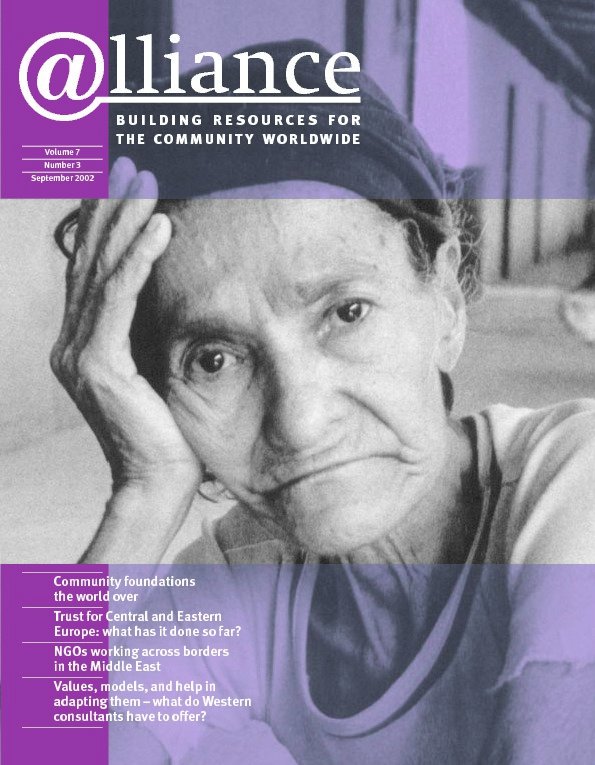The NGO accreditation vs self-regulation debate rolls on – something we have featured previously in Alliance and an issue which is rightly being given ever more attention. But, rather like the posturing and soundbites of a US presidential debate, this discussion polarizes an issue which is actually part of a wider debate about the role of NGOs in society.
It is no coincidence that the recent backlash against NGOs in the pages of the Economist and other journals is emerging at a time when the more high-profile NGOs are actually taking seriously the challenge of development as leverage rather than as service delivery.
Leverage or service delivery?
The leverage approach relies on lines of solidarity with groups supported by the NGO rather than on the sympathy culture created through decades of service delivery funded by private charity and public grants. I would suggest that for many institutions with a vested interest in the political and economic status quo, NGOs are fine as long as they remain ‘in their place’, delivering services to poor people.
In the North, decades of fundraising focusing on portraying need has created a highly successful culture of sympathy. This is a culture that fits snugly with accreditation: the donor as consumer, wanting ‘value for money’, a kitemark. It is a conservative culture and one that is likely to be influenced by scare stories about unaccountable NGOs. And it is a culture that is rapidly being promoted in the developing world through the introduction of modern fundraising techniques.
The limits of accreditation
In India, CAF India has been piloting a payroll giving scheme, providing donors with information on a selection of NGOs which CAF India has fully validated, ie they meet a set of organizational standards. But it is becoming clear that individual donors in the scheme actually want to get to know the charities themselves. Employees of one company are now volunteering for a local charity working with street children as well as donating money. The point is that even high-quality validation is not sufficient to secure donor trust. The alternative to securing support through this type of local solidarity link is the national recognition gained by charities such as CRY through mass marketing campaigns. For most NGOs in India, and indeed throughout the developing world, this approach is not feasible.
It is important that NGOs win public trust, but their legitimacy can best be secured by being responsive to the constituencies of people for whom they set themselves up to work and to those who support them. At CAF we are concerned to increase the flow of resources to effective NGOs and to make sure that this is sustainable. There is no doubt that donors need quality information, and we continue to believe that the internet will in time provide the means of connecting donors of all shapes and sizes with NGOs around the world. But there must be serious doubt whether a database of however many thousands of accredited organizations will convince international donors to give, any more than Indian donors seem convinced by the data on charities in the CAF India pilot scheme.
Accreditation ignores the multiple relationships and roles that most NGOs have, and downplays the qualitative aspects of legitimacy in favour of a narrow, structural view of an organization. It could be justified if it was likely to lead to a massive increase in the flow of funds but this seems unlikely.
But in highlighting the weaknesses of accreditation we should not lose sight of the issues that prompt the debate in the first place. Self-regulation must be serious, backed, as Michael Edwards outlines in NGO Rights and Responsibilities, by common standards, and it must be implemented rigorously by NGOs themselves. If NGOs are seen to keep their own house in order, to be responsive to those for whom they work and those who support them, surely this will be the most effective means of building public trust and confidence. It may also mean that NGOs can be sustained on the basis of solidarity support rather than the culture of sympathy.
Andrew Kingman is International Director at CAF. He can be contacted by email at akingman@caf.charitynet.org
For more on solidarity, listen to our Alliance Audio podcast: Solidarity & Philanthropy.





Comments (0)